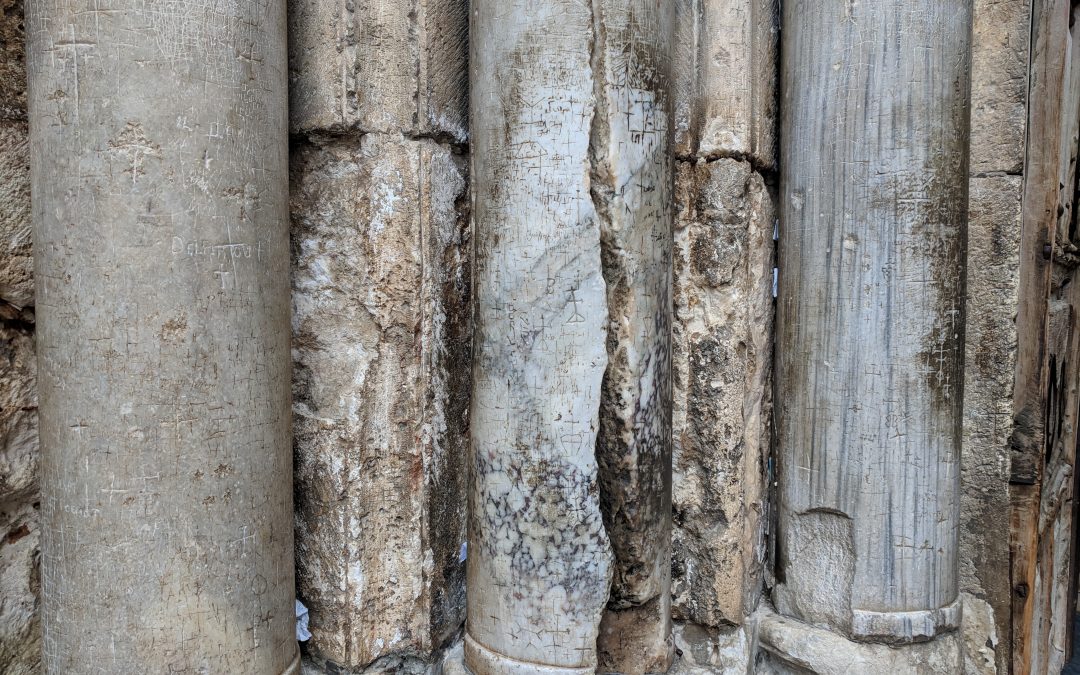Saturday, May 16, 2020
Editor’s Note: Pastor Scott Peterson continues to share devotions from some of his favorite authors.
Knowing the Truth
by Gracia Grindal
“I don’t much agree with you…about suffering teaching you much about the redemption. You learn about the redemption simply from listening to what the Church teaches about it and then following this to its logical conclusion”.
Flannery O’Connor
In this letter O’Connor speaks to the skewed theology of the cross which many people carry around with them. Looking for suffering, they almost seem to covet it since it brings them closer to Christ, they say, and teaches them what he has done for us. Once again, we see O’Connor’s utter lack of sentimentality and her rather tough approach to the faith.
Following the teaching of the church on the redemption brings one directly into contact with suffering, through no effort on the part of the Christian. She explains this in the context of her character Tarwater in her novella The Violent Bear It Away. “People are depressed by the ending of The Violent Bear It Away because they think: poor Tarwater, his mind has been warped by that old man and he’s off to make a fool or a martyr of himself. They forget that the old man has taught him the truth and that now he’s doing what is right, however crazy” (O’Connor 1963).
It is bracing to think of the consequences of knowing the truth and acting on it. This is not the same as going to look for the truth, as O’Connor inferred from her correspondent’s idea. Truth has found the prophet and now he is bound to speak it. This brings him no end of suffering, suffering he cannot really understand.
In this same letter O’Connor says, “I haven’t suffered to speak of in my life and I don’t know any more about the redemption than anybody else. All I do is follow it through literally in the lives of my characters.”
In less than a year after writing those remarkable sentences, she will be dead from lupus after years of suffering from the illness, years of hospitalization, harsh medications that wearied her body, but never her spirit. For her, faith was a gift, the teaching of the church a way into life.
For we are God’s servants, working together; you are God’s field, God’s building. According to the grace of God given to me, like a skilled master builder I laid a foundation, and someone else is building on it. Each builder must choose with care how to build on it. For no one can lay any foundation other than the one that has been laid; that foundation is Jesus Christ. Now if anyone builds on the foundation with gold, silver, precious stones, wood, hay, straw— the work of each builder will become visible, for the Day will disclose it, because it will be revealed with fire, and the fire will test what sort of work each has done. If what has been built on the foundation survives, the builder will receive a reward. If the work is burned up, the builder will suffer loss; the builder will be saved, but only as through fire.
(1 Corinthians 3:9-16)
FLANNERY O’CONNOR (1925-1964) was born in Milledgeville, Georgia. In 1945, after graduating from Georgia College in Milledgeville, she attended the writing school at the University of lowa, where she earned a Master’s in Fine Arts. She began working in a writing colony near Saratoga Springs, New York, where it became apparent that she had a major talent. In 1950, she was diagnosed with lupus and moved back home to Georgia. She lived with her mother on the family farm until her premature her death at 39. She wrote two novels and thirty-two short stories.
A devout Catholic all her life, she was conversant with most of the theology of the day, but she did not write theology. Fiction was her gift and she used it to show what happens to people in the secular culture when grace smashes into their lives. This shocked many people who did not approve of her violent picture of the faith. She regarded their criticism with good humor and a wry distance.
The writing of Flannery O’Connor inspired these devotions written by Gracia Grindal, Professor Emerita of Luther Seminary, where she taught July 1984 – June 2013.
Photo: Exterior Columns with Graffiti Crosses at the Church of the Holy Sepulchre, Jerusalem (2018). By Meredith Kilby, Communications Director, Messiah Lutheran Church

